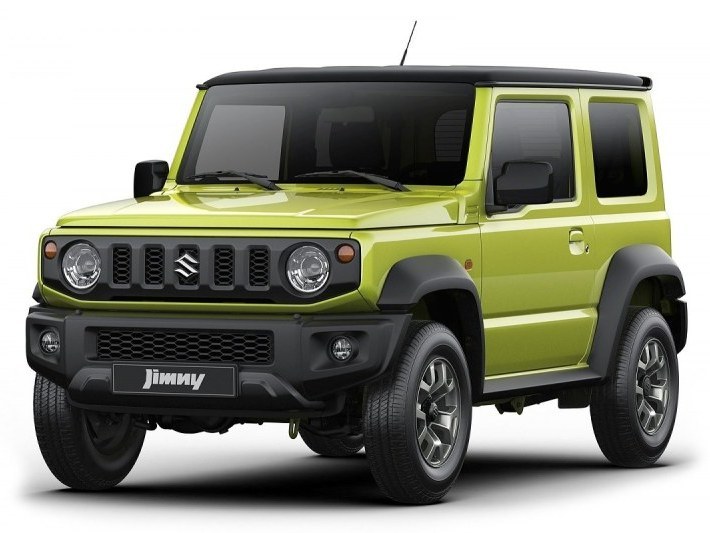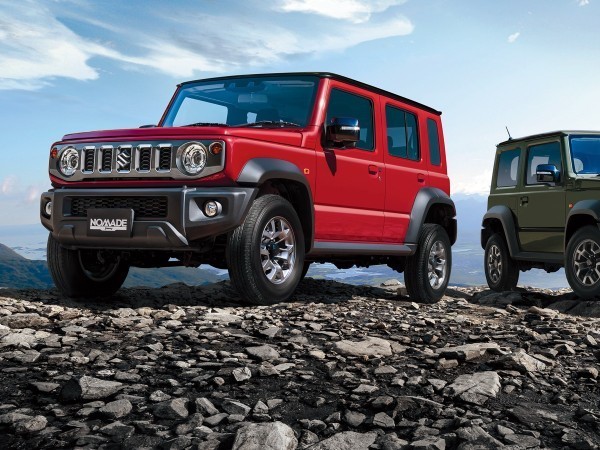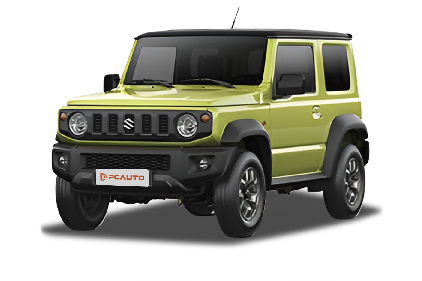Q
why is the suzuki jimny so expensive
So, why does the Suzuki Jimny carry a premium price tag in Malaysia? Let's break it down. First off, since it's an imported vehicle, it gets hit with those hefty import duties and taxes, which directly jack up the final sticker price. Then there's the fact that the Jimny is a real one-of-a-kind. With its rugged off-road chops and that classic boxy design, there's almost nothing else on the market that competes directly with it. That scarcity factor definitely plays into keeping the price up there.
On top of that, it's built with a body-on-frame construction and a trusty 4x4 system, so right there, the manufacturing costs are already higher than your average city SUV. Another thing to note is that in Malaysia, the Jimny is sold as a CBU (completely built-up) import, unlike some models that have CKD (locally assembled) versions to help bring costs down.
It's worth mentioning too—even though it's compact, the Jimny's off-road performance can seriously hold its own against some bigger, more imposing 4x4s. That kind of specialized capability adds to its overall value. Plus, in the Malaysian market, the Jimny holds its value really well, which just goes to show how popular and well-regarded it is. For Malaysian buyers who love off-roading, the Jimny offers a relatively affordable way to get into a proper, capable off-roader. Yeah, it's pricier than a regular city SUV, but when you factor in its unique position and those pro-level abilities, it's hard to argue it's not worth the investment.
Special Disclaimer: This content is published by users and does not represent the views or position of PCauto.
Related Q&A
Q
What engine is in the 2024 Suzuki Jimny?
The 2024 Suzuki Jimny continues to be powered by the well-regarded 1.5-liter K15B naturally aspirated four-cylinder gasoline engine. This powerplant features a lightweight aluminum block, delivering 102 horsepower and 130 Nm of peak torque. It's mated to either a 5-speed manual or 4-speed automatic transmission, and comes standard with a part-time 4WD system with low-range gearing, making it suitable for both city commuting and light off-roading. Known for its durability and low maintenance costs, the engine pairs with the Jimny's classic ladder frame and body-on-frame construction, balancing handling stability and terrain capability. What's notable is that despite its small displacement, the short wheelbase and generous ground clearance make it nimble in tight city streets or rough terrain, while the addition of an electronic limited-slip differential further enhances its ability to get out of tricky spots. For those prioritizing fuel efficiency, keeping an eye on the official maintenance recommendations—like using low-viscosity engine oil or maintaining proper tire pressure—can help optimize real-world fuel economy. While there's no hybrid option yet, this powertrain has been market-tested for years and is particularly well-suited to our region's varied driving conditions.
Q
Is the 2024 Suzuki Jimny a good off-road vehicle?
The 2024 Suzuki Jimny is really a great fit for off-roading. It carries on the Jimny lineup's classic rugged design, with a tough body-on-frame construction, paired with a part-time 4WD system and electronic limited-slip differential, making it a breeze to tackle tricky terrains like mud and sand. Its short wheelbase and good ground clearance also boost its off-road capability. The 1.5-liter naturally aspirated engine might not be the most powerful, but it delivers steady low-end torque, perfect for slow off-road crawling, and it's pretty fuel-efficient too. The interior is simple and functional – the manual handbrake and physical buttons are more direct and reliable when you're out on the trails. To expand a bit, if you're into light to moderate off-roading often, the Jimny's size and agility make it shine on narrow mountain roads or jungle tracks. But if you need to do a lot of highway driving or haul cargo, the space and comfort can feel a bit lacking. Maintenance costs are relatively affordable too, with plenty of parts available, which is good for folks who love outdoor adventures but don't want to spend a fortune. All in all, the 2024 Jimny keeps its traditional strengths in off-road performance and stands as a solid value in entry-level off-roaders.
Q
What engine is in the Jimny 2024?
The 2024 Jimny still packs a 1.5-liter K15B naturally aspirated four-cylinder gasoline engine, cranking out 102 horsepower and 130 Nm of peak torque. It's mated to either a 5-speed manual or 4-speed automatic gearbox. This powertrain is known for its durability and low maintenance costs, making it a solid fit for city commutes and light off-roading. While the power figures aren't exactly head-turning, the Jimny shines off-road thanks to its lightweight body and ladder frame construction. The part-time 4WD system with low-range gearing to multiply torque handles mud, gravel, and other tricky terrains with ease. One thing to note: this engine uses multi-point fuel injection instead of direct injection. Yeah, it's a bit behind the curve on fuel efficiency compared to the latest tech, but it's way more forgiving with lower-quality fuel, which is a big plus in areas where gas station infrastructure is hit-or-miss. If you're craving more power, the turbocharged versions available in some overseas markets might pique your interest, but don't hold your breath for them here anytime soon—emission regulations are probably going to keep them out. For daily use, I'd recommend keeping an eye on your spark plugs and throttle body. With these small-displacement naturally aspirated engines, keeping the intake system clean is key for maintenance.
Q
How much is the Jimny 2024?
The latest prices for the 2024 Jimny range from approximately 150,000 to 180,000 Ringgit, depending on the trim level and configuration. Exact pricing may vary due to dealer promotions or optional accessories. This model retains the iconic boxy design and robust off-road capabilities, powered by a 1.5L naturally aspirated engine paired with a 4AT transmission, and features the ALLGRIP PRO part-time 4WD system—perfect for outdoor adventure enthusiasts. Notably, the 2024 version has been refined for better sound insulation and suspension comfort while keeping hardcore elements like the ladder frame chassis and three-link rigid axle suspension. As a compact off-roader, it offers great modification potential; local owners often add off-road tires or roof racks. Before purchasing, it’s advisable to test drive at an authorized showroom to experience its unique driving feel and inquire about after-sales warranty policies, which typically cover 5 years or 100,000 kilometers. Fuel economy is moderate, averaging around 12-14L/100km in urban driving, but increases significantly in off-road conditions.
Q
Is Jimny good for city driving?
As a compact SUV, the Suzuki Jimny holds its own pretty well for city driving in Malaysia. That 3.7-meter short body is a total lifesaver for squeezing through tight lanes and nailing those tricky parking spots in congested cities like KL. The 1.5L naturally aspirated engine paired with the 4AT gearbox isn't going to win any drag races, but it's got enough low-end torque to handle stop-and-go city traffic without breaking a sweat – though you will notice it drinks a tiny bit more fuel than your average urban SUV.
Let's talk ride quality: the Jimny's body-on-frame construction and solid axle suspension can feel a bit jiggly on smooth tarmac, but that generous ground clearance? It laughs at Malaysia's potholed roads and those annoying temporary roadblocks you find everywhere. A heads-up though – the back seat is pretty snug. It's perfect for 1-2 people commuting daily, but if you're regularly ferrying around a full crew, comfort might take a hit.
Here's where the Jimny really shines, though – off-road capability, which is a huge plus for adventure-loving owners. Weekends up to places like Cameron Highlands or Fraser's Hill? This little rig handles those mountain roads like a champ. Over in the Malaysian market, Jimnys hold their value surprisingly well, and servicing is generally straightforward – just be prepared that original parts can be a touch pricier than your run-of-the-mill city cars.
Q
Does Jimny have resale value?
In the Malaysian market, the Suzuki Jimny actually maintains a relatively high resale value as a used car, which is primarily attributed to its unique design, solid off - road capabilities, and relatively limited supply. As a compact, hardcore off - roader, it has no direct local competitors. Plus, with that classic boxy shape and impressive go - anywhere ability, it has a large fan base among off - road enthusiasts and buyers looking for something with personality—so demand for used ones stays steady. The high prices of new cars and long waiting periods also indirectly support the resale values of second - hand vehicles.
Based on actual market data, a 3 - year - old Jimny typically retains about 65% to 75% of its original price, which outperforms city SUVs in the same price bracket. It's worth noting, however, that the actual resale value is influenced by the vehicle's condition, mileage, and any modifications made. Unmodified models with complete factory service records are undoubtedly more in demand in the used car market.
When Malaysian consumers purchase a niche vehicle like this, in addition to considering the resale value, they should also take into account their actual usage scenarios. The on - road comfort and interior space of the Jimny cannot compare with those of mainstream SUVs, however, its off - road capability is second to none among niche vehicles. This unique positioning is precisely what enables it to maintain its value so effectively.
Q
Where is Jimny built?
The Suzuki Jimny is currently rolling off the production lines at Suzuki's Hamamatsu plant in Japan, and this classic compact off-roader has built a global fanbase – Malaysia included – thanks to its tough-as-nails body-on-frame construction and impressive go-anywhere capabilities. Underpinning that rugged character is a ladder frame chassis paired with a part-time 4WD system, making it a solid fit for Malaysia's diverse landscapes. Whether you're navigating city streets or tackling weekend adventures, the Jimny handles it all with ease.
What really stands out, though, is how this little SUV punches above its weight when the going gets rough. Its generous ground clearance and short wheelbase translate to exceptional off-road articulation, which is a big reason it's a hit for tackling Malaysia's rainforests and rural tracks. For Malaysian buyers, the Jimny's appeal goes beyond just off-road prowess. Its relatively affordable price tag and low running costs are major draws, and when you factor in Suzuki's well-established after-sales network locally, it becomes the perfect pick for folks who want genuine off-road fun without breaking the bank. And in recent years, as Malaysian buyers have shown a growing appetite for more individualistic rides, the Jimny's retro-cool looks and massive potential for customization have only added to its popularity, especially among younger drivers.
Q
Are Jimny Motors reliable?
The Suzuki Jimny has built a solid fan base among Malaysian drivers, thanks to its tough, no-nonsense design and impressive off-road capabilities – it’s especially well-suited for the country’s varied terrain. This little SUV packs a 1.5L naturally aspirated engine that delivers smooth power while keeping fuel costs in check, and with relatively low maintenance expenses, it’s a smart pick for budget-conscious buyers. When it comes to reliability, the Jimny has a proven track record; its chassis and mechanicals have stood the test of time with minimal issues. That said, its lightweight body does mean some wind noise at highway speeds, and the interior leans more toward practicality than luxury – though for folks who prioritize function over frills, that’s hardly a dealbreaker. The Jimny also holds its value well in Malaysia’s used car market, which speaks volumes about its dependability. If you’re frequently tackling rural roads or light off-roading, the Jimny is definitely worth a look – just remember to keep up with regular servicing to keep it running strong for years to come.
Q
Why is Jimny famous?
The Jimny is renowned for its unique rugged off - road design, reliable performance, and compact, nimble body – traits that make it stand out in Malaysia's varied terrain. As a Suzuki classic, it features a body - on - frame construction, a part - time four - wheel - drive system, and ample ground clearance, enabling it to handle mud, gravel, and even light climbing trails with ease. No wonder it's a hit among off - road enthusiasts and outdoor adventurers.
Then there's its compact size, which is perfect for Malaysia's tight city streets and rural backroads. Coupled with decent fuel efficiency, it achieves a good balance between daily commuting and weekend adventures. In recent years, the Jimny's retro boxy looks have also attracted the attention of fashion - conscious individuals, making it a popular choice for customization and modifications.
Furthermore, its strong resale value in the used car market – a testament to its solid reputation and durability. For Malaysian buyers, the Jimny isn't just a practical off - roader; it's a lifestyle symbol, ideal for drivers who crave freedom and adventure.
Q
Why was Jimny discontinued?
So, why did the Jimny get the axe in Malaysia? Let's break it down. The main culprit is the ever-tightening global emissions regulations, especially the Euro 6 standards. The third-gen Jimny (JB74) with its 1.5L engine just couldn't keep up with the latest green demands, and Suzuki hasn't rolled out a compliant upgrade specifically for Southeast Asia yet.
On top of that, the Malaysian government's recent tweaks to import duties and certification processes have jacked up the cost of bringing in small off-roaders, chipping away at the Jimny's competitiveness. Don't get me wrong, the Jimny's a total legend among off-road enthusiasts – that short wheelbase and body-on-frame setup are pure off-road DNA. But let's be real, those same traits make it a bit of a handful for daily city driving and not the most fuel-sipper out there.
Now, the fourth-gen Jimny is out in some markets with the necessary updates to meet new rules. But here's the thing: Malaysians are pretty price-sensitive, and the SUV segment is fiercely competitive. So Suzuki's probably hitting pause on bringing it in for now.
If you're a Malaysian off-road fan craving something small but capable, don't despair. Keep an eye on alternatives like the new Toyota Land Cruiser or Mitsubishi Pajero Sport. They've both got the off-road chops and are fully compliant with local regulations.
Popular Cars
Model Year
Car Compare
Car Photo
Latest Q&A
Q
Do I need an alignment after rotation?
Whether a four-wheel alignment is needed after tire replacement depends on the actual condition of the vehicle. If only the tires are replaced and the vehicle has been driving normally without deviation, steering wheel vibration, or uneven tire wear, a four-wheel alignment is usually not required immediately, but wheel balancing must be performed to ensure stability when the wheels rotate at high speeds. However, if problems such as directional deviation, reduced steering precision, misaligned steering wheel, or abnormal tire wear (e.g., one-sided wear) occur after tire replacement, four-wheel alignment is necessary to adjust the geometric parameters of the suspension system (including caster angle, front wheel camber, etc.), thereby restoring the vehicle's straight-line driving stability and uniform tire contact with the road. Moreover, if chassis component repairs (such as suspension or steering system) are involved during tire replacement or the vehicle has been in a collision, four-wheel alignment becomes an essential step, as it can effectively reduce abnormal tire wear, improve handling safety, and lower fuel consumption. It is recommended to check the alignment parameters regularly every 20,000 kilometers or once a year. If you frequently encounter rough road conditions (such as curbs or speed bumps) during daily driving, the inspection interval should be shortened accordingly. Professional technicians can measure the data using specialized equipment and compare it with the manufacturer's specifications to determine whether adjustments are needed.
Q
Is it okay to rotate tires every 10,000 km?
Rotating tires every 10,000 kilometers is a reasonable and necessary maintenance measure, especially for fuel vehicles, as this frequency can effectively balance the wear difference between front and rear tires. Tire rotation involves regularly adjusting the installation positions of tires (e.g., moving front tires to the rear), which ensures more uniform wear across all tires, thereby extending the overall service life by approximately 20%-30%. For fuel vehicles, it is recommended to rotate tires every 10,000 kilometers, while for new energy vehicles, due to their greater weight and stronger torque output, the interval should be reduced to 8,000 kilometers. During rotation, the cross-rotation method should be employed (i.e., moving front tires to the opposite rear positions), and tire pressure should be checked simultaneously to ensure it meets the specified standards (2.3-2.5 bar for fuel vehicles, with an additional 0.2 bar for new energy vehicles). It is important to note that if a tire exhibits abnormal unilateral wear, bulges, or tread depth below 1.6 millimeters, simple rotation is not recommended and the tire should be replaced immediately. Regular monthly tire pressure checks and removal of debris from treads can further enhance tire performance and safety.
Q
What happens if you don't rotate tires?
If tire rotation is not performed regularly, it will lead to uneven tire wear, which in turn causes multiple problems. For front-wheel-drive vehicles, the front tires bear both driving and steering functions, so their wear rate is significantly faster than that of the rear tires; for rear-wheel-drive vehicles, since power is concentrated on the rear tires, the rear tires wear more noticeably. Long-term failure to rotate tires will shorten the overall tire life by 20%-40%—the front tires may be scrapped prematurely while the rear tires remain relatively new, resulting in resource waste. In addition, uneven wear reduces traction, particularly on wet surfaces, which can easily lead to skidding or a 10%-15% increase in braking distance, thereby elevating driving risks. Irregular wear also exacerbates tire noise and increases fuel consumption by 0.3-0.8 liters per 100 kilometers due to uneven rolling resistance. It is recommended to rotate tires every 10,000 to 15,000 kilometers. For front-wheel-drive vehicles, the cross-rotation method should be employed (left front to right rear, right front to left rear), while for rear-wheel-drive vehicles, the rear tires need to be crossed to the front. After rotation, tire pressure (the standard value typically ranges from 2.3 to 2.6 bar) should be verified and wheel balancing performed to prevent high-speed vibrations. If the tires exhibit irregular wear patterns or the tread depth falls below 1.6 mm, they should be replaced immediately. Regular tire rotation not only prolongs tire lifespan but also enhances fuel efficiency and driving safety. The cost of a single rotation is approximately 50 to 100 ringgit, substantially lower than the expense of premature tire replacement.
Q
Is it good to rotate car tires?
Tire rotation is an important maintenance measure to ensure even tire wear and extend service life. It is recommended to perform it every 5,000 to 10,000 kilometers or when uneven wear is detected. For front-wheel drive vehicles, the front tires wear faster as they handle steering and braking tasks, so they need to be cross-rotated with the rear tires (left front to right rear, right front to left rear). For rear-wheel drive vehicles, the rear tires should be diagonally swapped with the front tires to balance the wear of the drive wheels. If the tires have a directional tread pattern or asymmetric design, the rotation direction must be maintained, and only front-to-rear swaps on the same side are allowed to avoid affecting handling on wet and slippery roads. After rotation, the tire pressure should be adjusted to the standard for the corresponding wheel position, and it is recommended to perform dynamic balancing and four-wheel alignment simultaneously to optimize driving stability. Note that snow tires or studded tires cannot be rotated, and tires with different front and rear sizes can only be swapped left and right. Regular rotation can reduce abnormal wear (such as uneven wear or wavy patterns), improve grip and driving quietness, reduce safety hazards caused by tire problems, and save replacement costs in the long run. The specific operation should be based on the vehicle manual. If there is a lack of guidance, the cross-rotation method for bias-ply tires or the same-side rotation method for radial tires can be prioritized.
Q
How often should car tyres be rotated?
The replacement cycle of car tires should be determined by comprehensively considering factors such as service life, mileage, driving habits, and environmental conditions. Generally, it is recommended to replace them every 3 to 5 years or after 60,000 to 80,000 kilometers of driving, whichever comes first. As rubber products, tires deteriorate over time. Even if the mileage threshold hasn't been reached, immediate replacement is necessary when sidewall cracks, bulges appear, or tread depth falls below 1.6 mm (verifiable with a coin test) to ensure safety. Due to their heavier weight and stronger torque output, new energy vehicles experience accelerated tire wear. It is advisable to shorten the inspection interval to every six months, with urban commuting replacement mileage typically ranging from 42,000 to 56,000 kilometers. Regular tire rotation helps distribute wear evenly. For front-wheel-drive vehicles, front-to-rear rotation every 8,000 to 10,000 kilometers is recommended, while for new energy vehicles with higher front axle loads, this interval can be reduced to 6,000 to 8,000 kilometers. Additionally, maintaining cold tire pressure at 2.3 to 2.5 bar (add 0.2 bar for new energy vehicles) and avoiding aggressive maneuvers like rapid acceleration and hard braking can extend tire lifespan by 15% to 20%. Tires exceeding 6 years from their production date (identifiable via the DOT code on the sidewall) should be replaced regardless of apparent condition.
View MoreRelated News

How to improve the power of Suzuki Jimny?
AshleyNov 27, 2025

Only 55! Limited-Edition Jimny Coming to France
MichaelJun 20, 2025

Suzuki Jimny's Trusted 4WD System: Unleash Off-Road Thrills
Kevin WongMay 13, 2025

Jimny Nomade Japan released, over 50,000 orders in 4 days, consumers need to wait for 3.5 years
MichaelFeb 5, 2025

Suzuki Jimny Arctic Launch: Limited Time Offer to Save 7000 Ringgit!
Kevin WongNov 18, 2024
View More


















Pros
Cons